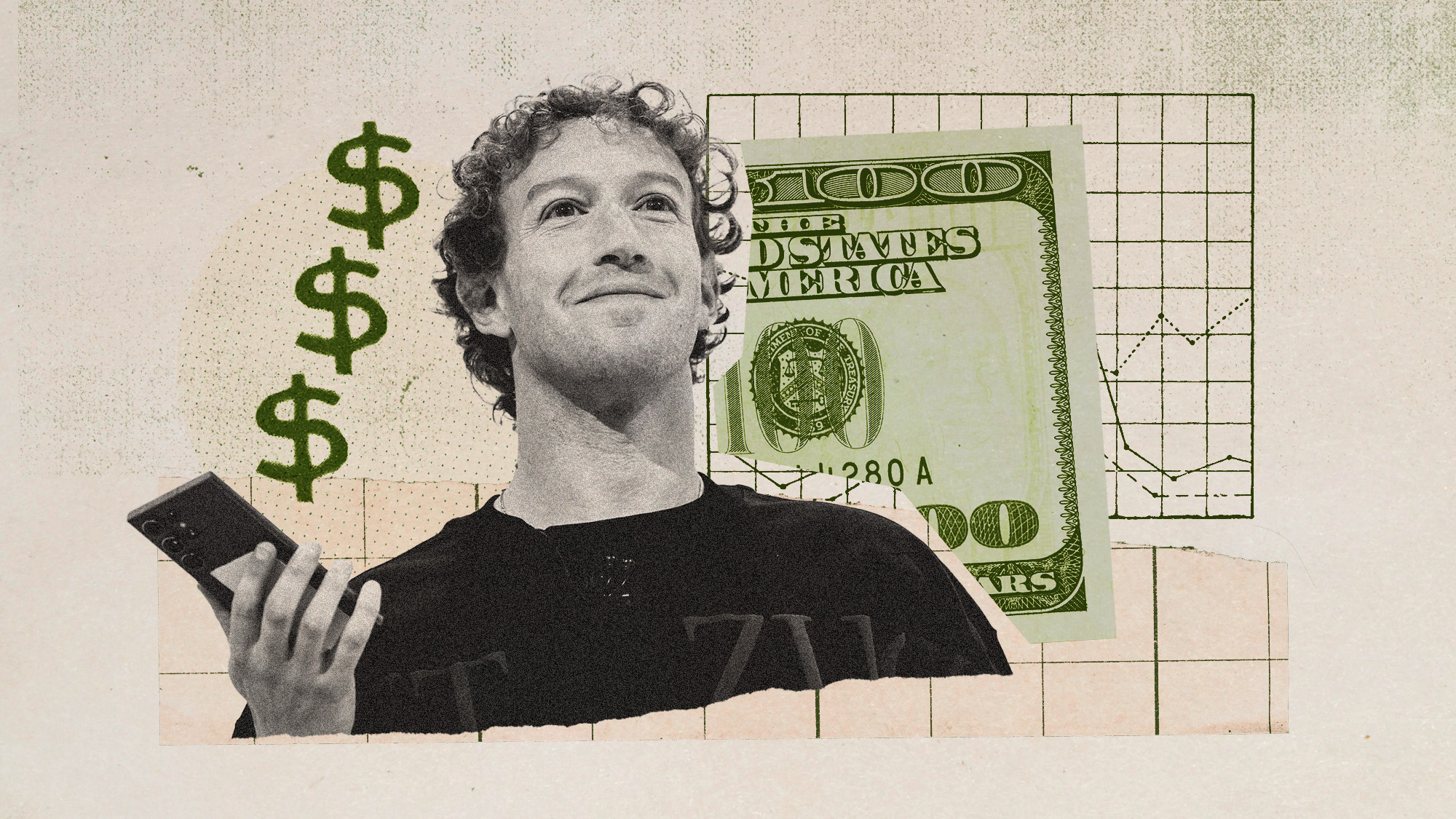The case against surveillance advertising
Ads were just fine when they weren't targeted using your most intimate personal details


A free daily email with the biggest news stories of the day – and the best features from TheWeek.com
You are now subscribed
Your newsletter sign-up was successful
Senate Democrats recently advanced a bill that would ban surveillance advertising — the core of the business model of Google, Facebook, Twitter, and several other tech companies. The Senate Judiciary Committee committee voted for the bill this week — and on a bipartisan basis, no less. In response, of course, armies of tech lobbyists are swarming Congress.
They shouldn't succeed in their aim to derail this legislation, which ought to be passed as soon as possible. Surveillance advertising is pointless, dystopian, and socially poisonous.
The scale of surveillance advertising alone is horrifying when you stop to think about it. Big Tech has created a pervasive, inescapable panopticon beyond the wildest dreams of the East German secret police. Virtually everyone's communication, friend networks, buying habits, and physical location are tracked in minute detail every minute of every day. The fact that the resulting information is usually only used to try to convince people to buy things is no comfort whatsoever — it's still incredibly creepy.
The Week
Escape your echo chamber. Get the facts behind the news, plus analysis from multiple perspectives.

Sign up for The Week's Free Newsletters
From our morning news briefing to a weekly Good News Newsletter, get the best of The Week delivered directly to your inbox.
From our morning news briefing to a weekly Good News Newsletter, get the best of The Week delivered directly to your inbox.
Tech apologists often argue that surveillance is fine because customers have (usually) consented to it by clicking a box at at the end of a 900-page end user license agreement. This is ridiculous. There's usually no way to use use tech hardware and services — much of it a near or absolute necessity for modern life, employment, and education — without mindlessly accepting the entire document.
No one reads or thinks about those terms because there's no real choice. Saying people have meaningfully "consented" to this is like Gilded Age oligarchs claiming workers "consented" to giving up their unionization rights with a yellow dog contract. If you ask people directly about the idea instead of burying it in a long, mandatory legal document, four in five say surveillance advertising should be banned.
Moreover, the mere existence of such a system is a violation of privacy and practically an engraved invitation to blackmail, including by the state. In the 1960s, when the FBI was attempting to blackmail Martin Luther King Jr. into committing suicide, it took years and a ton of money and work to assemble a dossier of compromising personal information. (Incidentally, there was quite a lot of that — a reminder that even great moral exemplars often have unfortunate vices that are nevertheless no business of the cops or the public.) Now, far more extensive information is available to the FBI or CIA, which are arguably more lawless today than they were 70 years ago, at the click of a button. The same is true of innumerable employees at Big Tech firms as well as hackers who might gain access to their data systems.
It's true that behemoths like Google and Facebook make lots of money from surveillance advertising, and banning it would seriously disrupt their approach. But it's not as though they'd go out of business — they could still sell ads against traffic, and they'd still be the biggest players in a game where surveillance advertising would be banned for their competitors, too.
A free daily email with the biggest news stories of the day – and the best features from TheWeek.com
And anyway, it's not hard to see how making these companies less powerful and profitable would serve the public good. The rise of Google and Facebook came at the cost of tremendous damage to the journalism industry. As David Dayen points out at The American Prospect, news outlets used to sell themselves to advertisers with audience research — that is, general demographic information rather than personalized, individual dossiers. Giant tech platforms destroyed that business model and took most of the advertising money. As a result, publications of all sorts have been ruined, especially local news. Many small and even mid-sized cities have functionally no local politics coverage anymore, and that void in many cases has been filled by paranoid Facebook and Nextdoor groups.
Finally, it's not even clear whether targeted advertising is any better for businesses than the normal kind. These platforms have a lot of dazzling hype about the alleged ultra-accuracy of their Big Brother machine, but we've all been targeted with ads for things we'd never consider buying. (I constantly get car insurance ads despite having never owned a car in my life.) Or there's the ones that follow you around for weeks flogging something you already bought.
Both Google and Facebook have been caught repeatedly lying about their metrics, too. They allegedly conspired against advertisers to rig online ad markets, and one study found advertisers pay a large premium for targeted ads that are only 4 percent more effective than non-targeted ones. Where these ads are "successful" is even worse: The targeting function has enabled advertisers to discriminate illegally, showing housing and employement ads, for example, only to users in certain demographics.
Normal advertising, for all its problems, doesn't come with those risks. And it's not like it was hard to advertise when the only options were television, newspapers, radio, magazines, billboards, leaflets, non-targeted web ads, and word of mouth. Let's stop Big Tech from selling our details and enjoy some good old privacy again.
Ryan Cooper is a national correspondent at TheWeek.com. His work has appeared in the Washington Monthly, The New Republic, and the Washington Post.
-
 The best music tours to book in 2026
The best music tours to book in 2026The Week Recommends Must-see live shows to catch this year from Lily Allen to Florence + The Machine
-
 Gisèle Pelicot’s ‘extraordinarily courageous’ memoir is a ‘compelling’ read
Gisèle Pelicot’s ‘extraordinarily courageous’ memoir is a ‘compelling’ readIn the Spotlight A Hymn to Life is a ‘riveting’ account of Pelicot’s ordeal and a ‘rousing feminist manifesto’
-
 The EU’s war on fast fashion
The EU’s war on fast fashionIn the Spotlight Bloc launches investigation into Shein over sale of weapons and ‘childlike’ sex dolls, alongside efforts to tax e-commerce giants and combat textile waste
-
 Is social media over?
Is social media over?Today’s Big Question We may look back on 2025 as the moment social media jumped the shark
-
 Social media: How 'content' replaced friendship
Social media: How 'content' replaced friendshipFeature Facebook has shifted from connecting with friends to competing with entertainment companies
-
 Meta on trial: What will become of Mark Zuckerberg's social media empire?
Meta on trial: What will become of Mark Zuckerberg's social media empire?Today's Big Question Despite the CEO's attempt to ingratiate himself with Trump, Meta is on trial, accused by the U.S. government of breaking antitrust law
-
 What does an ex-executive's new memoir reveal about Meta's free speech pivot?
What does an ex-executive's new memoir reveal about Meta's free speech pivot?Today's Big Question 'Careless People' says Facebook was ready to do China censorship
-
 What's Mark Zuckerberg's net worth?
What's Mark Zuckerberg's net worth?In Depth The Meta magnate's products are a part of billions of lives
-
 Is the AI bubble deflating?
Is the AI bubble deflating?Today's Big Question Growing skepticism and high costs prompt reconsideration
-
 How social media is limiting political content
How social media is limiting political contentThe Explainer Critics say Meta's 'extraordinary move' to have less politics in users' feeds could be 'actively muzzling civic action'
-
 Twitter's year of Elon Musk: what happens next?
Twitter's year of Elon Musk: what happens next?In the Spotlight 'Your platform is dying', says one commentator, but new CEO is aiming for profitability next year
